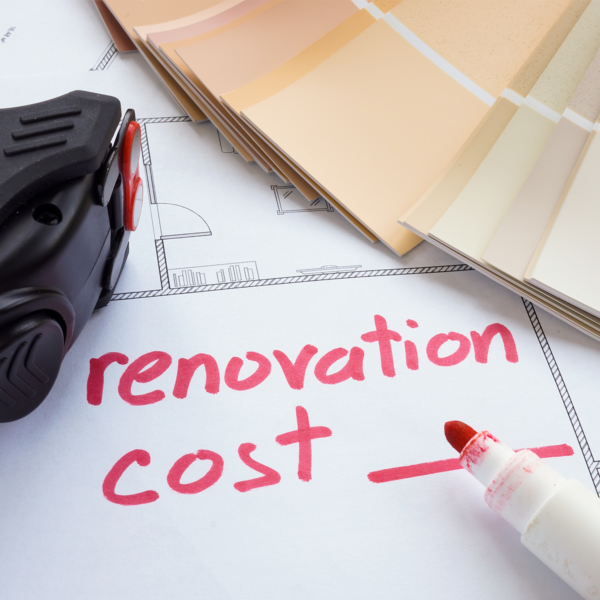Renovations are often looked at as a cure-all for improving the family dynamic, or even as a sure-fire bet to increase the value of a home. But that’s not always the case. There are many steps to undertaking a renovation, but the first one is to determine if it’s the right one to take for you, your family and for the value of the home—which equates to the generational wealth that real estate can build. Before you take the renovation plunge, consider these important factors:

1. Know the Cost Basis of Your Income
Most people would expect me to focus my efforts on a renovation entirely on the economic proposition of the renovation: $1 in must return you 35%, the whole financial matrix. The best rule of thumb is not to lose money on a renovation. If you understand your basis in the house, you understand what the market will allow in terms of the maximum, and you know that those are the guardrails.
The basis of investment for a house is essentially your original acquisition price—I paid $200,000 for the house, I put a pool in for $10,000.
Now I’m at $210,000. Then I renovated the house for another $30,000. Now I’m at $240,000. And now we’re standing here about to do a larger renovation. I know what my basis is. It’s the amount of money that I’ve put into the house.

2. Ask Yourself: Do I Really Need the Renovation?
When you start determining what you’re going to spend your first dollar on, you need to make sure that it’s something that you believe is going to add value. If you’re doing something in your renovation that isn’t going to give you a return, you’re going to know it. You don’t need a realtor to tell you; you don’t need an appraiser to tell you. But you may still choose to do that. Because it provides the joy and the love or the fun or the excitement for you or your family.
You can do that inside of the framework of a larger number. You just can’t do that all the time. And you can’t go over your budget. Unless you really can accept the fact that the money that you’re going to put in over that last dollar is going to be gone.
3. Run the Renovation Numbers
Before doing a renovation, you should really ask yourself a few very, very important financial questions that you are willing to be honest about, at a minimum with yourself.
Number one is: Can I afford to do this renovation? Ask yourself: Do I have the disposable cash available to me and a bank account that isn’t my kids’ college savings and isn’t my emergency rainy day fund? It’s something that you can afford to part with because you believe that taking that money and investing it in your property is going to yield something greater. In a way, it’s no different than buying a stock.

4. Be Cautious About Using Home Equity
Another question to ask yourself before starting a renovation is whether it makes sense to borrow against the home’s equity. There are moments in time where you have paid down your house over 10 or 15 years and you’ve built up a lot of equity, meaning that the value of your house in the current market is in excess of your mortgage balance.
Borrowing against equity with a Heloc, or home equity loan, is an okay idea if you don’t have the cash, but—and it’s a big but—if you’re struggling to
make your mortgage payment today, then you shouldn’t do it. Because your mortgage payment, when you pull more equity out of your house, is going to go up. I’ve seen a lot of people rationalize to say, “OK, I can pull $60,000 of equity out of my house, I’m going to take $12,000 of it and park it in a separate account, and I’m going to use $48,000 of it to make the renovation and the incremental payment. I will take this out of the $12,000 that I put off to the side.”
But when that $12,000 runs out, what are you going to do?
So, the analysis that I would ask you to do is, if you’re going to take a home equity line out, or use credit cards, or do whatever you’re going to do, I need you to walk yourself through how you’re going to be able to afford that modified payment. Or more importantly, if you take it on a credit card, what’s the process and the amount of time and the cost to pay it back?

5. Think About What the Renovation Will Provide in the Short and Long Term
The best rule of thumb? Don’t lose money. The other best rule of thumb? Do things that you’re going to really enjoy, that your family is going to enjoy. Know that you’re going to get use out of the house; you’re not building the interior of the house purely for an investment. The investment should sit in the back of your mind because you are responsible for taking that asset and passing on generational wealth.




